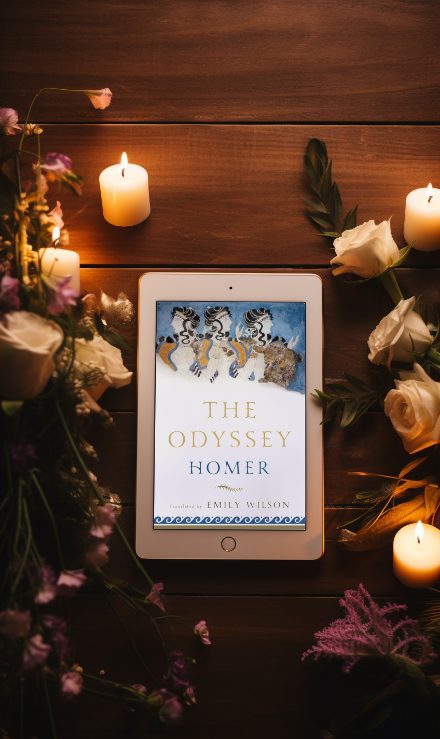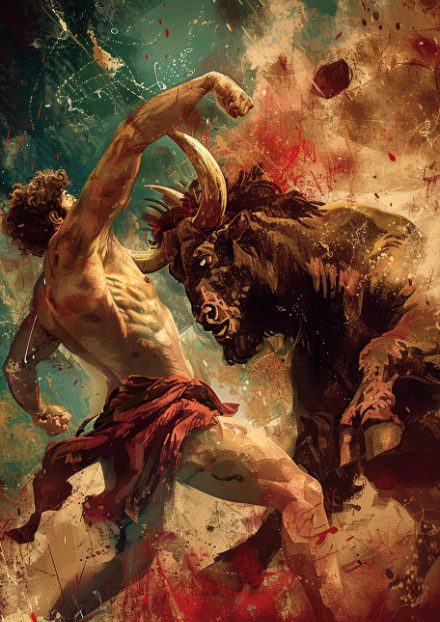There’s no doubt: myths are seeing a resurgence in popular culture. With the success of books like Song of Achilles and series like Percy Jackson and the Olympians, it’s clearer than ever that our society loves a good legend. (Disney+ even announced a second season of Percy Jackson is coming soon. Yay!) And, as you may already know, these myths are typically told time and time again.
But where exactly do these stories come from? And why do they matter?
Let’s take a look at the different types of myths and how to understand the origins of these stories.
RelatedDifferences Between Folklore, Myths, and Legends: Are They One & The Same?
What is a myth?

“Mythos” is a Greek word which means “story of the people.” According to Britannica.com, myth is defined as “a symbolic narrative, usually of unknown origin and at least partly traditional, that ostensibly relates actual events.”
This means that most myths present a pattern of behavior to either be imitated or avoided. Therefore, it’s no surprise that most myths contain a moral or ethical message, and many myths are closely tied to societal or religious expectations.
Myth falls under the broader category of folklore, which is the shared stories and cultures of a group of people. This makes sense: when we think of myths, we often think of them in the context of their culture or faith tradition, such as Norse or Hindu mythology.
What are the different types of myths?

Myths have been around since the dawn of civilization, but they haven’t been the subject of serious academic study until the twentieth century. Scholar Joseph Campbell was one of the most visible public figures who promoted the academic exploration of mythology and folklore.
Although there have been many proposed frameworks for understanding myths, there are three commonly proposed categories of myth:
- Etiological myths
- Historical myths
- Psychological myths
But what exactly do these categories mean?
RelatedMythology Retellings: A Resurgence In Popularity
Etiological myths typically seek to explain the origin or cause of something. They’re often a response to the question “how?” or “why?” One famous example of an etiological myth is the story of Persephone and her kidnapping by Hades, which is proposed as the cause for the seasons of the year.

Historical myths, on the other hand, are a retelling of a historical event, often fictionalized or exaggerated. The purpose of these stories is to preserve the memory of something significant that happened. While these stories are often factually inaccurate, they help to create meaning around occurrences like wars and origins. Some well-known myths that fall into this category are Homer’s Iliad and Odyssey.
Finally, psychological myths are stories that week to explain why humans act and feel the way we do. Examples of these types of myths include the goddess Aphrodite moving people to fall in love or the story of Oedipus, who ultimately killed his father and married his mother.
Where do these stories come from?

By their very definition, myths have an unknown origin. They’re passed down from generation to generation as part of an oral or written tradition. While scholars haven’t yet pinned down one precise reason for these stories, many researchers agree that mythology is an important part of many cultures around the world.
The human experience can be a scary thing, from aging to falling in love to death, and myths provide a framework for understanding those experiences. These patterns are universal across cultures, so it makes sense that many myths from around the world explore similar questions and themes.
Some academics have even proposed that myths are an important survival tool. In particular, many psychological myths such as the stories of Narcissus or King Midas impart important ethical lessons, such as the rejection of vanity or greed. These morals are directly aligned with ideas of community, generosity, and selflessness—important values for group survival, which were key in earlier civilizations.
Great. But why do myths matter?

To get the obvious out of the way first: a lot of myths are incredibly juicy. No matter the culture, most myths are full of drama, love, and betrayal, which means they make for great adaptations. There’s a reason we love books and series based on myths. They’re just incredible stories.
RelatedThe Best Greek Mythology Retellings You Need To Read This Year
But, on a deeper level, myths are important because they capture the very essence of what it means to be alive. By reading legends and folklore from different cultures, we can develop a greater awareness and understanding of the values, traditions, and customs of those cultures. We can understand the nuances of a given culture, for example, by looking at its mythology and folklore.
Perhaps most importantly, myths are important because they are a way to understand the commonalities we all share. Yes, perhaps the moral code might change slightly from one culture to the next.
Generally speaking, however, there’s a lot more overlap than difference. By learning more about the mythology of other cultures, we can develop a greater sense of understanding and empathy rather than division and otherness.
Will myths help us reach global peace? Somehow, I doubt it. On a personal level, though, myth’s ability to unite is undeniable, regardless of exactly where these stories might come from.
















